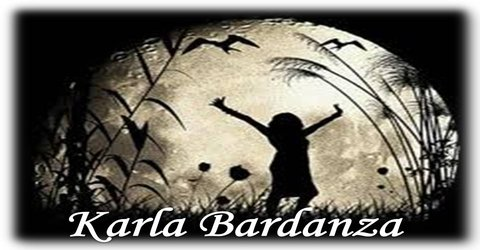Painting by Pablo Solari
When he left, he was 18
and didn't know that the road to hell was paved
with good intentions.
It was as if he was living inside Picasso's Guernica
when the explosions baptized his life,
sprinkling his eyes with death, scattering pieces of his heart
on that holy ground.
(It was so early to be immolated)
He feeds his demons daily
as the blind balance weighs the disaster:
123 lie in the Darwin cemitery,
350 committed suicide exiled on white and blue soil,
and the rest was shunned and branded as failures.
Nobody saw they were 18-19 years old
when they were invited to conquer paradise.
He would like to have been an Art teacher,
maybe he could have married a girl called Guadalupe
but he was buried alive.
He is sleeping in that cemitery with the other lambs.
For him The Falklands will always be The Malvinas.
For him the quest for the Holy Grail ended in shame.
Karla Bardanza
The Falklands War (Spanish: Guerra de las Malvinas or Guerra del Atlántico Sur), also known as the Falklands Conflict or Falklands Crisis, was a 1982 limited war between Argentina and the United Kingdom. The conflict resulted from the long-standing dispute over the sovereignty of the Falkland Islands and South Georgia and the South Sandwich Islands, which lie in the South Atlantic east of Argentina.
The Falklands War began on Friday 2 April 1982, when Argentine forces invaded and occupied the Falkland Islands and South Georgia. The British government dispatched a naval task force to engage the Argentine Navy and Air Force, and retake the islands by amphibious assault. The resulting conflict lasted 74 days and ended with the Argentine surrender on 14 June 1982, which returned the islands to British control. 649 Argentine military personnel, 255 British military personnel and three Falkland Islanders died during the conflict. It remains the most recent external conflict to be fought by the UK without any allied states and the only external Argentine war since the 1880s.
In the period leading up to the war, and especially following the transfer of power between military dictators General Jorge Rafael Videla and General Roberto Eduardo Viola in late-March 1981, Argentina had been in the midst of a devastating economic crisis and large-scale civil unrest against the military junta that had been governing the country since 1976.[10] In December 1981 there was a further change in the Argentine military regime bringing to office a new junta headed by General Leopoldo Galtieri (acting president), Brigadier Basilio Lami Dozo and Admiral Jorge Anaya. Anaya was the main architect and supporter of a military solution for the long-standing claim over the islands,[11] calculating that the United Kingdom would never respond militarily.[12] In doing so the Galtieri government hoped to mobilise Argentines' long-standing patriotic feelings towards the islands and thus divert public attention from the country's chronic economic problems and the regime's ongoing human rights violations.
(source:Wikipedia)
Copyright©Karla Bardanza 2012














You have an extraordinary gift to write for the souls of others. This is a beautiful tribute to the brave souls who died for a dream and their country. EXALT! This belongs in a museum my friend!
ReplyDelete